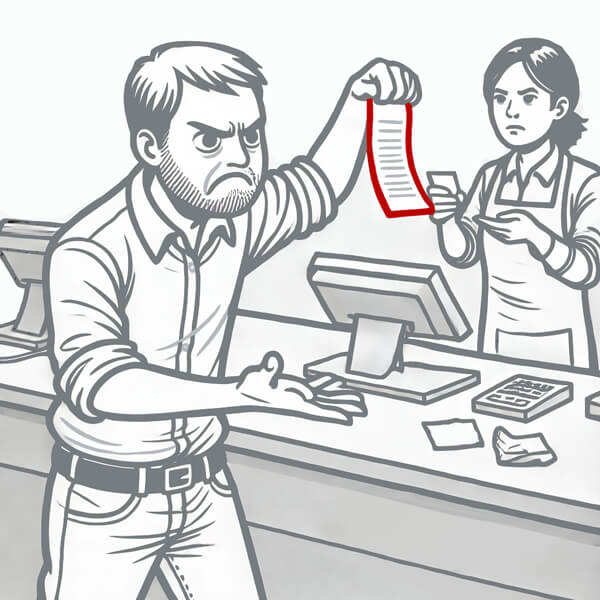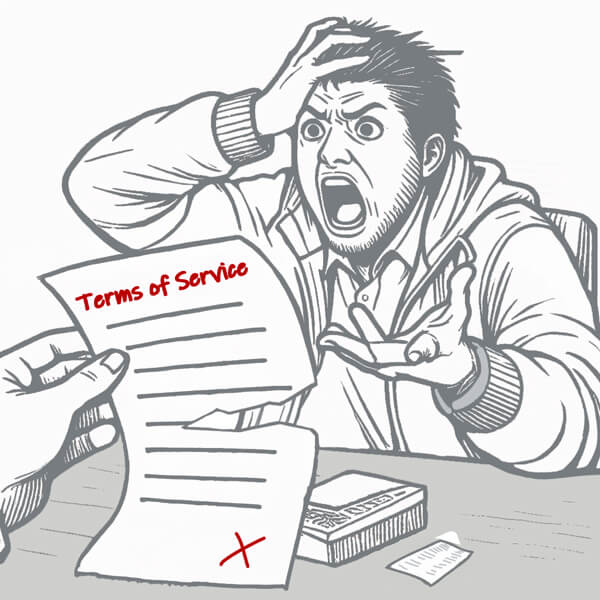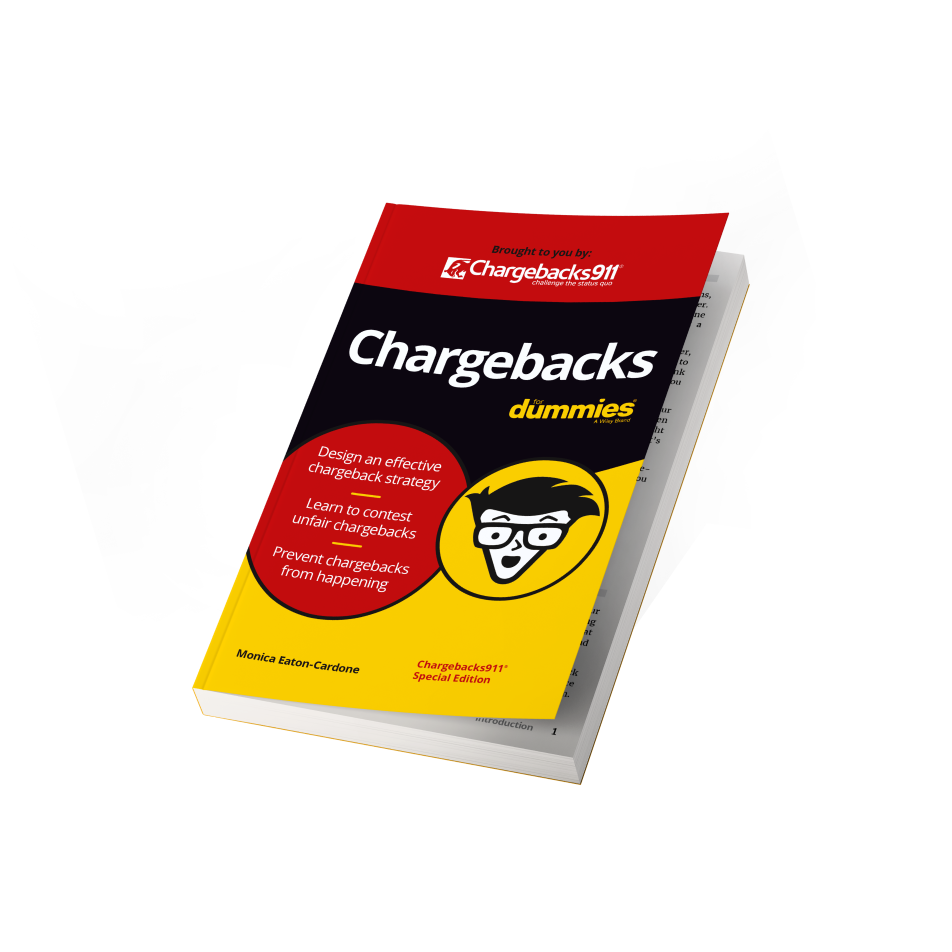Can You Make a “No Chargeback Agreement” With Your Customers?
We get it: as a merchant, you’re fed up with chargebacks. Wouldn’t it be fantastic if you could add a “no chargeback” clause to your terms of service that would stop the madness altogether? Does such a solution even exist?
In this article, we’ll discuss ‘no chargeback agreements,’ why they aren’t really an option, and how best to avoid chargebacks in the first place.
A great place to start this discussion is by looking at your terms of service.
Recommended reading
- Chargeback Insurance: Choose the Best Protection in 2025
- What are Chargeback Alerts? The Merchant's Guide for 2025
- The Top 30 Chargeback Risk Factors to Eliminate in 2025
- Examining AI’s Historic Role in Fighting ‘Friendly Fraud’
- What is a Business Continuity Plan? Tips, Guides & Examples
- Can a Chargeback Blacklist Prevent Post-Transaction Fraud?
How Your Terms of Service Affect Chargeback Management
Every sale is an agreement between you and a customer. A clear terms of service (ToS) agreement that spells out how cardholders should handle post-purchase returns, refunds, exchanges, and disputes may help you avoid chargebacks.
Your terms of service can, in some cases, affect your chargeback ratio. One of the more compelling items of evidence in a chargeback representment case is the customer’s signature on a ToS announcement pre-checkout.
Every sale you make is an agreement. You, the merchant, agree to hand off goods or services in exchange for compensation from the cardholder. The cardholder, therefore, agrees to pay in exchange for goods or services you provide. This contract is legally binding for both you and the cardholder within the framework of the terms and conditions laid out at the time of the purchase.
Chargebacks often occur due to perceived breaches of these terms of service by the merchant. This can lead to disagreements between the merchant and cardholder.
Some of the most common claims that cardholders make in connection with chargebacks include:
Do “No Chargeback Agreements” Exist?
Not really, since the Fair Credit Billing Act (FCBA) generally renders them unenforceable.
Technically, you’re free to write a no-chargeback agreement into your policies. Remember, though: the cardholder's bank is the judge here. Plus, they have the power of the law in their corner.
Cardholders are guaranteed the right to recover funds unfairly charged to their account under the Fair Credit Billing Act. By the very act of filing a chargeback, the buyer is implicitly making one of the following claims:

The purchase was not authorized
Someone other than the cardholder or another authorized user made the purchase. Therefore, the cardholder never agreed to your ToS because they never approved the transaction.

You didn’t live up to your end of the bargain
You, as the merchant, failed to provide the goods or services stipulated under the ToS, thereby invalidating the "no chargeback" agreement. So, the no chargeback clause would not hold up whichever way you slice it.
You could use your no-chargeback clause as evidence if you wanted to take the case to arbitration by Visa and Mastercard or even to small claims court. However, the results would essentially be the same.
Learn more about chargeback lawsWhichever way you slice it, a "no chargeback agreement" would not hold up to scrutiny. A better approach is to shift focus where it would be most effective: chargeback prevention.
4 Tips to Prevent Chargebacks WITHOUT a No Chargeback Agreement
Adopting business best practices may help prevent chargebacks. For example, you should clarify your terms of service (ToS) agreement with cardholders, offer exceptional customer service, deploy fraud detection tools, and minimize merchant errors.
As we’ve mentioned, there's no way to guarantee you won't see any chargebacks except to stop accepting card payments. Whatever choices you make, however stable your systems and best practices…you may never rid yourself of them entirely.
The best strategy is to prevent a chargeback from happening in the first place. Here are a few ideas that can kick your chargeback prevention efforts into high gear:
#1 | Refine Your ToS
While your terms of service can’t prevent chargebacks outright, they may help filter out some of the more easily-preventable chargebacks. A good ToS agreement can help you fight chargebacks by:
- Making your return policy clear, informative, and helpful to customers.
- Ensuring your terms of service are visible and easy to find.
- Asking customers to sign in before proceeding to checkout.
- Emailing customers a copy of their receipt with every purchase.
This won’t prevent all chargebacks. That said, refining your ToS can certainly help eliminate a lot of misunderstandings that can lead to disputes.
Learn about policies that prevent chargebacks#2 | Optimize Customer Service
Outstanding customer service should be a no-brainer. Many chargebacks can be nipped in the bud right then and there by simply making yourself available and receptive to your customers’ needs. This relies on maintaining close communication at each stage of the process (fulfillment, shipping/tracking, and delivery information) and providing authentic marketing that keeps its promises to consumers.
Taking this a step further, you must make sure customers can reach you at their convenience. There’s no such thing as “regular business hours” when you’re a global eCommerce seller.
You can meet this challenge using chatbots, live customer service via phone and email, and autoresponders. The goal is that you want your customers to view contacting you as a more convenient option rather than contacting the bank.
Learn about customer service best practices#3 | Use the Right Fraud Detection Tools
Several prevention methods have been proven to help detect fraud and validate cardholders. It would be best if you took advantage of these readily available prevention tools. Network tools such as Address Verification Service (AVS), card security codes (CVV), and 3-D Secure 2.0 (3DS2) are all methods of validating a shopper’s identity. Using these and other tools together can improve fraud detection accuracy.
There are other chargeback prevention tools available as well. Chargeback alerts, for example, provide advance notice of disputed transactions. Automated response programs offered through the card networks, like Order Insight (for Visa) and Consumer Clarity (for Mastercard), work in real-time to resolve inquiries.
Learn about fraud detection toolsCustomer service isn’t everything. Sometimes fraud is your culprit.
#4 | Best Practices Get the Job Done
Merchant error accounts for more chargebacks than you may realize. Errors like submitting incorrect information or not requesting authorization for CNP (card-not-present) transactions often result in chargebacks. Chargeback triggers can be hidden throughout your practices, draining your time and revenue.
Thankfully, almost all chargebacks that result from merchant error are preventable. The trick is simply a matter of detecting and responding to them in time to stop disputes from being filed. If you evaluate all of your internal processes, from POS to transaction logs, the weaknesses in your practices should be readily apparent.
Learn to prevent common merchant errorsThe ‘No Chargeback Agreement’ That Works Best: Proaction
While a “no chargeback clause” sounds like a solution sent straight from heaven, the reality is that the chargeback process isn’t going anywhere. The best you can do is manage your business practices and seek out prevention strategies with realistic boundaries and implications.
An effective chargeback management strategy must be flexible enough to identify new trends and techniques, counteract new technology, and adapt on the fly to a constantly shifting landscape.
Chargebacks911 offers the most comprehensive chargeback management services and products available today. No other provider can deliver our level of transparent, end-to-end chargeback management, going beyond prevention to revenue recovery and future growth.
Whatever you need to prevent chargebacks, we can help. Contact us today for a free demo.
FAQs
What does "no chargebacks" mean?
A "no chargebacks" clause means a cardholder agrees to forfeit their right to file a chargeback with their issuer after a payment has been processed. In effect, the cardholder promises to work with the merchant to resolve disputes that subsequently arise.
What is a chargeback agreement?
A chargeback agreement is a set of terms and conditions between a merchant and their payment processor on how to handle the chargeback process. These agreements specify the fines and penalties associated with excessive chargebacks and the length of time merchants have to represent a chargeback.
Merchants can also create chargeback agreements with customers. As a condition of purchase, cardholders agree not to file chargebacks against merchants. The Fair Credit Billing Act (FCBA), however, may render these agreements unenforceable, though, thereby defeating the purpose.
What payment method has no chargeback?
Alternative account-to-account payment methods, like iDEAL and Bancontact, do not have any kind of built-in chargeback dispute process. Additionally, Sorfort by Stripe and Nihao Pay, which are used in the Asia-Pacific region, have no-chargeback features that reduce the risk of post-transaction fraud for merchants. Other payment methods, like Bitcoin or cash, also come without chargebacks.
Why is a chargeback so bad?
Chargebacks are bad for merchants because they result in higher operational costs and lower profitability. Chargebacks can also damage a merchant’s business reputation or lead to a suspension or loss of payment processing privileges.
How do I avoid chargeback payments?
To avoid chargeback payments, you should deploy fraud detection and prevention tools like geolocation technology or device fingerprinting. Developing a clear return and refund policy, using accurate product or service descriptions when marketing, implementing clear billing descriptors, and analyzing post-transaction data for trends and errors can also help you keep chargebacks at bay.













